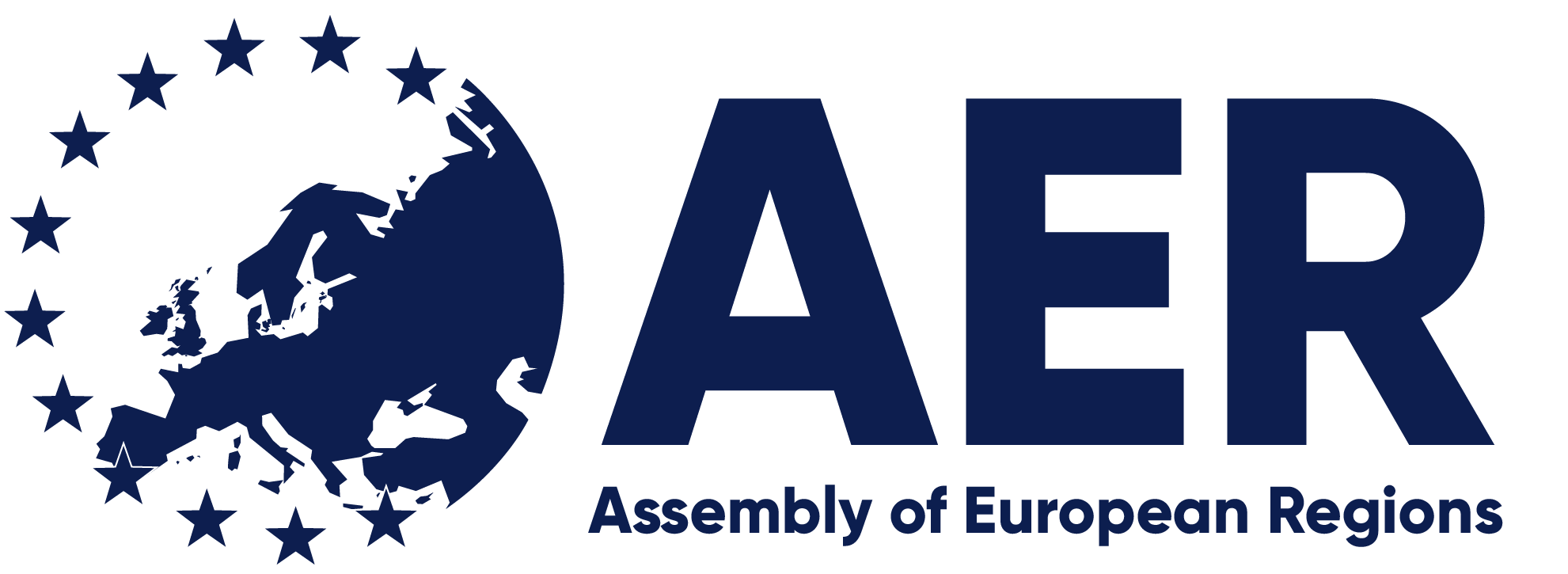
Summary
The Assembly of the Regions (AER) and Friends of Europe were delighted to team up for this very topical debate. On the agenda, we discussed: Europe’s political response to COVID-19; the role of regions in responding to this crisis; the future implementation of UN SDGs; and the potential impact of the EU’s Cohesion Policy.
Pandemic — COVID-19 is a unique opportunity for Europe to rethink how we work politically
Regions were the first to step up as national governments hesitated in their pandemic response, argued event moderator Dharmendra Kanani, of Friends of Europe. For him “COVID-19 is a unique opportunity for Europe to reconnect, rethink and refresh how we work politically.” Five speakers explored the pandemic’s impact on lives and livelihoods across Europe, and its potential to accelerate the transition to sustainability.
- 11:27 the crisis is an opportunity to green the economy in all sectors, including the digital agenda (Magnus Berntsson, President of the Assembly of European Regions)
- 16:24 the crisis underlined the frontline role of regions and localities – emergency measures, lockdowns and recovery packages (Aziza Akhmouch, Head of Division for Cities, Urban Policies and Sustainable Development at the OECD)
- 54:14 cities reacted well to the pandemic, quickly building new infrastructure like cycling paths (Aziza Akhmouch, Head of Division for Cities, Urban Policies and Sustainable Development at the OECD)
Regions — Regions ensure no-one gets left behind
Regions are ideally placed to support local development. For instance, “regional actors [can] work closely with citizens and local businesses,” noted Magnus Berntsson, President of the Assembly of European Regions. Damià Calvet, Minister of Territory and Sustainability of Catalonia, agreed, adding that “regions have a holistic peripheral view and underpin socio-economic dynamism, so that no-one gets left behind”
- 12:38 “regional actors must work closely with citizens and local businesses” (Magnus Berntsson, President of the Assembly of European Regions)
- 23:08 cities and regions’ recovery plans are often bolder than national plans (Dharmendra Kanani, Friends of Europe)
- 56:08 for global agendas, cities can be more vocal than regions (Aziza Akhmouch, OECD)
- 01:00:02 regions can struggle to do their jobs, if they are stripped of competences and resources (Magnus Berntsson, President of the Assembly of European Regions)
- 01:18:09 “regions have a holistic peripheral view and underpin socio-economic dynamism, so that no-one gets left behind” (Damià Calvet, Minister of Territory and Sustainability of Catalonia)
- 01:20:31 in global forums, regions and cities have a diverse and strong voice – can push for resilience and sustainability (Damià Calvet, Minister of Territory and Sustainability of Catalonia)
SDGs — Regions are at the heart of implementing the UN SDGs
All countries should adopt a territorial approach to the SDGs, as they are powerful policy drivers for change in territories. However, local and regional governments are “not always meaningfully engaged in SDGs’ implementation, follow-up or review” warned Berntsson. This is cause for concern, as 65% of the 17 SDGs targets cannot be achieved without these partners.
- 17:21 all local thinking is closely connected to each SDG, e.g. air quality, transport and housing (Aziza Akhmouch, Head of Division for Cities, Urban Policies and Sustainable Development at the OECD)
- 23:46 one solution to sustainability problems is multi-level governance within countries (Aziza Akhmouch, Head of Division for Cities, Urban Policies and Sustainable Development at the OECD)
- 31:28 regions have key roles in the SDGs, but also need a political vision for green recovery (Raffaele Cattaneo, Minister for Environment and Climate of Lombardy (IT) and member of the Regions 4 Steering Committee)
- 01:18:34 this crisis is a great opportunity for cities, regions and cities to align fully with Agenda 2030, to work more multilaterally and to cooperate better for value-added sustainable cooperation (Damià Calvet, Minister of Territory and Sustainability of Catalonia)
EU response — EU Cohesion Policy response is closely linked to the SDGs
European regions worst affected by COVID-19 claim that the EU has abandoned them. Yet the bloc and its executive have redoubled efforts to tackle the crisis and to accelerate sustainability. The European Commission’s longer-term response includes EU investment and a green recovery budget for 2021 to 2027, increased from €1100 to €1815 bin, plus the new REACT-EU initiative totalling €58.3 bn, noted Wallis Goelen-Vandebrock, Senior Expert to the Deputy Director-General for Implementation at the European Commission Directorate-General for Regional and Urban Policy.
- 37:54 Lombardy citizens sometimes felt the EU had disappeared in mid-crisis (Raffaele Cattaneo, Minister for Environment and Climate of Lombardy (IT) and member of the Regions 4 Steering Committee)
- 01:07:28 today’s Cohesion Policy response has close links with the SDGs: 94% of resources to achieve 11 of the 17 SDGs (Wallis Goelen-Vandebrock, Senior Expert to the Deputy Director-General for Implementation at the European Commission Directorate-General for Regional and Urban Policy )
- 01:15:48 SDGs and their achievement remain the key direction for EU Cohesion Policy, at all government levels (Wallis Goelen-Vandebrock, Senior Expert to the Deputy Director-General for Implementation at the European Commission Directorate-General for Regional and Urban Policy)
About
Multi-level governance is one of the backbones of European integration. Cities and regions offer vibrant networks, local expertise and unique solutions that can be a valuable source for the shaping of new policies closer to citizens’ needs. Europe’s success will depend on EU’s ability to tap into its local leadership. A new localism, informed by stronger local and national authorities’ partnerships, bottom-up policies, civic dialogues, is therefore essential to ensure European policies effectively tackle global challenges.
PHOTO CREDIT: AER
Schedule
Regions and cities have been the first responders to the outbreak of the COVID-19 pandemic, coping with the immediate impact on their health systems, and enforcing lockdowns while sustaining families and local businesses. In its economic recovery plan, together with the 2021-2027 Multiannual Financial Framework (MFF), the European Commission has recognized the instrumental role of regions for a sustainable recovery. Now more than ever, local and national authorities should join forces towards achieving a more resilient global society. The UN 2030 Agenda for Sustainable Development well outlines the path for regions to tackle the current and future challenges. With 2030 a decade away, regions should take a lead on implementing the UN Sustainable Development Goals (SDGs), focusing on ensuring healthy lives and wellbeing, inclusive and sustainable economic growth and equality within and among countries.
Questions include:
- What is the role of regions in attaining SDGs and how can they make sure that these are not taking the back seat in the current health crisis?
- What tools and key partnerships can be identified to strengthen resilience of regions and communities?
- What role do regions play in the framework of the Conference on the Future of Europe aimed at giving European citizens and localities a greater say on how the European Union could better work for them?
Speakers
Aziza Akhmouch
Head of Division for Cities, Urban Policies and Sustainable Development at the OECD
Magnus Berntsson
President of the Assembly of European Regions (AER)
Damià Calvet
Minister of Territory and Sustainability of Catalonia (Spain)
Raffaele Cattaneo
Minister for Environment and Climate of Lombardy (Italy) and member of the Regions 4 steering committee
Wallis Goelen-Vandebrock
Senior Expert to the Deputy Director-General for Implementation at the European Commission Directorate-General for Regional and Urban Policy (DG REGIO)
Moderator
Dharmendra Kanani
Chief Operating Officer and Chief Spokesperson of Friends of Europe
Speakers

Head of Division for Cities, Urban Policies and Sustainable Development at the OECD
In her current role, Aziza Akhmouch advises governments at all levels on how to design and implement better urban policies. Her division carries out thematic work related to smarter, greener and more circular cities as well as contributes to the localising of the Sustainable Development Goals (SDGs). With over ten years of experience at the OECD, Akhmouch has previously presided over the OECD’s unit on SDGs, Water, and Local Public Services as well as the OECD Water Governance Programme advising governments on how to design and implement better water policies for better lives.

President of the Assembly of European Regions (AER)
In his home region of Västra Götaland in Sweden, Magnus Berntsson is currently serving as the Regional Minister for the Environment after having worked in various roles at the Regional Council. His commitment to the empowerment of regions is highlighted by his work for the Assembly of European Regions (AER) where he served as representative of his home region, before becoming the Vice-President of the Standing Committee on Institutional Affairs and the Treasurer. His work as AER President continues to be shaped by his belief in regions where no one is held back or left behind.

Minister of Territory and Sustainability of Catalonia (Spain)
Damià Calvet works at the forefront of aligning the Sustainable Development Goals and the new urban agenda with the territorial and urban planning of the Spanish region of Catalonia. In his position, he is also responsible for Catalonia’s sustainability, mobility and infrastructure. Prior to this, he held various positions in the Government of Catalonia notably as Director-General for Architecture and Housing, Secretary for Territory and Mobility and Director of the Catalan Soil Institute. He also worked as professor at the Polytechnic University of Catalonia and was responsible for institutional relations at the United Nations University in Barcelona.

Minister for Environment and Climate of Lombardy (Italy) and member of the Regions 4 steering committee
Raffaele Cattaneo has dedicated much of his career to the empowerment of regions. He previously worked as Councillor for Infrastructure and Mobility of the Lombardy region after having served as manager of the Presidency Cabinet Office under Governor Roberto Formigoni. In consecutive roles as Deputy Secretary-General of the Regional Council, Regional Councillor and Undersecretary of the Presidency, he contributed to the regional well-being of Lombardy. He was also head of the Commission for Territorial Cohesion Policy and EU Budget (COTER) of the Committee of the Regions. He is the Vice-President of the Conference of European Legislative Assemblies (Calre).

Senior Expert to the Deputy Director-General for Implementation at the European Commission Directorate-General for Regional and Urban Policy (DG REGIO)
Prior to her current role, Wallis Goelen-Vandebrock worked as Head of Unit for Inclusive Growth, Urban and Territorial Development at the European Commission Directorate-General for Regional and Urban Policy (DG REGIO). She also presided over the ESPON programme at the European Commission aimed at promoting and fostering a European territorial dimension in development and cooperation that provides evidence, knowledge transfer and policy learning to public authorities and other policy actors at all levels.

Chief Operating Officer and Chief Spokesperson of Friends of Europe
Prior to joining Friends of Europe, Dharmendra Kanani was director of policy at the European Foundation Centre (EFC). He was the England director at the Big Lottery Fund, the largest independent funder in the UK and fourth largest in the world. Dharmendra has held senior positions in the public and voluntary sectors and advisor to numerous ministerial policy initiatives across the UK.
Partners
Continue
the debate on
- Debating Europe


